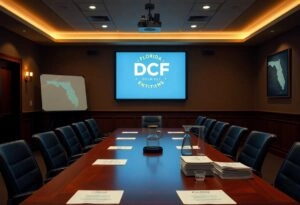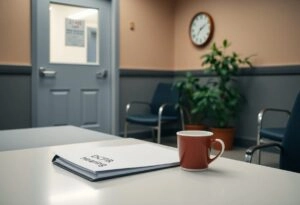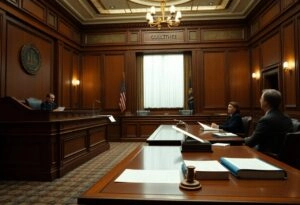How Can Priests Protect Themselves Against Unfounded DCF Accusations?
Father Jerry, a devoted priest in a small Massachusetts town, found his life turned upside down by a grave misunderstanding. He had always been a source of comfort and guidance in his community, known for his kindness, especially to the children of his parish. One afternoon, after a youth group meeting, Father Jerry comforted a tearful child with a reassuring hug.
Unfortunately, this innocent gesture was misinterpreted by another child who, unfamiliar with such displays of affection, felt uneasy and mentioned it to their parents in passing.
The situation quickly spiraled out of control. The concerned parents discussed the incident with other parents, and rumors began to spread wildly. Misinterpretations turned into serious accusations, and within days, the Department of Children and Families (DCF) was notified. Tasked with child protection, DCF launched an immediate and intense investigation into Father Jerry, treating the rumor as a credible accusation of sexual abuse.
This sudden scrutiny shocked Father Jerry and his parish. As the DCF investigation intensified, Father Jerry faced ostracism from those who once supported him. His daily routines were disrupted by invasive questions and the ever-present whispers of doubt among his parishioners. Community trust, once strong, frayed as the investigation cast a long shadow over his years of faithful service.
This article offers guidance to clergy like Father Jerry, who find themselves in nightmarish scenarios of accusations based on misunderstandings. It discusses crucial first steps to take when faced with allegations, including securing legal counsel skilled in handling sensitive cases involving clergy. Additionally, it provides strategies for maintaining composure under scrutiny and managing public perception effectively. Importantly, the piece advises on communicating effectively through appropriate channels to safeguard your reputation.
Continue reading to uncover how wrongfully accused priests can navigate the tumultuous waters of such accusations, ensuring they approach the situation with the seriousness it demands while protecting their rights and dignity.
The Role of DCF in Sexual Abuse Allegations
DCF’s goal is safeguarding children by investigating allegations of child abuse, including those against members of the clergy. Understanding the function and processes of DCF is essential for anyone involved in such cases.
When a priest is accused—especially when the allegation is the sexual abuse of minors—DCF’s involvement is swift. DCF’s role is to obtain reliable evidence as quickly as possible to ensure that no more children are exposed to real abuse. The problem DCF tends to face is that the children aren’t always competent and detailed reporters. Thus, DCF must go to other sources that may not be any more reliable.
For example, DCF will conduct interviews with the parents who, understandably protective of their child, choose to blindly trust their accounts. DCF will speak with individuals who can speak to the priest’s character, often member’s of the priest’s congregation, which often only serves to spread the allegations rather than confirm them.
In Massachusetts, DCF investigates hundreds of such allegations yearly, underscoring the
gravity and frequency of these issues. This highlights the importance of the church and its clergy being well-informed about DCF’s procedures.
Legal Rights and Protections for Accused Priests
Ensuring Proper Legal Representation
Securing skilled legal counsel is crucial for priests accused of abuse. A lawyer experienced in DCF defense cases can ensure every priest’s rights are defended during investigations. They can help collect and present the complex evidence that may be required to disprove these types of allegations. They can also help negotiate with DCF to ensure that such allegations are investigated in a careful and more confidential way.
Understanding the Investigation Process
Comprehending the investigation process by DCF and other authorities is vital for any accused priest. This knowledge can significantly impact the management and outcome of the case.
Priests have the right to understand the specifics of the accusations against them and access
legal representation throughout the process. They can challenge any part of the evidence presented and provide their own evidence and witnesses to support their defense. These rights empower priests to be able to actively participate in their defense, rather than being passive recipients of the process.
Strategies for Reputation Management and Support
Managing reputation and maintaining support networks are critical for priests accused of misconduct, especially allegations involving child molestation or other forms of sexual abuse.
Effective reputation management strategies for accused clergy members include:
- Coordinating with the church’s communications office to handle all external inquiries, ensuring that messages to the public are consistent and reflect the church’s commitment to truth and justice.
- Engaging with support systems offered outside the church, including counseling and legal advice.
A priest like Father Jerry facing false allegations would benefit greatly from consulting with an experienced DCF defense attorney to take control of the case before rumors spread and impact the church’s community forever.
Preventative Practices to Safeguard Against False Accusations
Given the seriousness and frequency of these allegations, it is crucial for priests to employ robust preventative measures. These measures are essential to protect against false accusations of child sexual abuse.
To mitigate the risk of facing such accusations, and to safeguard the well-being of minors within their pastoral care, clergy members should consider adopting the following protocols:
- Conduct in Visible and Accountable Settings: Always ensure interactions with children occur in open, visible areas to prevent situations where accusations could arise. For instance, counseling sessions with minors should take place in parts of the parish hall that are easily observed by others.
- The Presence of Witnesses: It’s crucial that another adult is present during any direct engagement with minors. This practice helps to ensure that all interactions can be verified by a competent third party if needed.
- Meticulous Record Keeping: Documenting all interactions with parishioners, especially minors, is vital. Details such as the date, time, setting, and nature of interaction, as well as a list of all present, should be recorded. This can be invaluable in refuting any false allegations.
- Safe Communication Practices: Avoid private communications with minors. All emails or messages should be accessible to parents or church administrators, and official platforms should be used for any digital interaction.
- Ongoing Education on Safe Practices: Regular training on appropriate behaviors and boundaries is crucial.
- Transparent Reporting Procedures: Churches should have clear, accessible procedures for reporting concerns about abuse. This transparency helps to build trust and ensures that both victims of abuse and those accused unjustly have their rights safeguarded.
Key Takeaway
In conclusion, understanding how to protect oneself from unfounded DCF accusations is crucial for any priest serving within the community. The strategies outlined above, including ensuring visibility during interactions with minors, maintaining the presence of a witness, and keeping meticulous records, are foundational in safeguarding against false allegations. These practices not only help in preventing potential accusations but also strengthen the trust and safety within the church community. Priests must be proactive in implementing these measures to protect their reputation and continue their vital roles in guiding their congregations.
Expert Defense for False Abuse Accusations – Contact Kevin Seaver Now
In navigating the challenging waters of accusations, especially those as grave as child abuse, having an expert ally can make all the difference. The Law Office of Kevin Seaver specializes in defending clients against DCF investigations, assessments, and representing them at Fair Hearings. If you are a priest who has been falsely accused of child abuse, it’s crucial to protect your rights and your reputation immediately.
Don’t navigate this troubling time alone. Contact the Law Office of Kevin Seaver today at (617) 263 2633 to schedule a consultation. Our expertise in handling sensitive DCF cases ensures that you receive not only legal support but a robust defense tailored to preserve your integrity and future.
[title style=”center” text=”disclaimer”]
You find yourself in this situation, it’s advisable to seek legal representation from a qualified attorney, like those at the Law Office of Kevin Seaver, who can advocate for your rights and guide you through the complex process of a DCF investigation.
Remember that the ultimate goal of DCF is to ensure the safety and well-being of children while supporting families in crisis.
Please note that this article does not create an Attorney-Client relationship between our law firm and the reader and is provided for informational purposes only. Information in this article does not apply to all readers.
Readers should not rely on this information as legal advice and should seek specific counsel from the attorney based on personal circumstances. Thank you.
Kevin Patrick Seaver is a Massachusetts DCF Defense Lawyer who represents parents against false child abuse allegations.
[section label=”Media Left” bg_color=”rgb(193, 193, 193)” bg_overlay=”rgba(255, 255, 255, 0.85)” padding=”60px”]
[row style=”large” v_align=”middle”]
[col span=”3″ span__sm=”12″ bg_color=”rgb(0, 35, 71)”]
[ux_image id=”13950″]
[/col]
[col span=”9″ span__sm=”12″ align=”left”]
Massachusetts DCF Defense Lawyer Kevin Seaver has been successfully fighting false child abuse allegations since 1991.
[/col]
[/row]
[/section]







